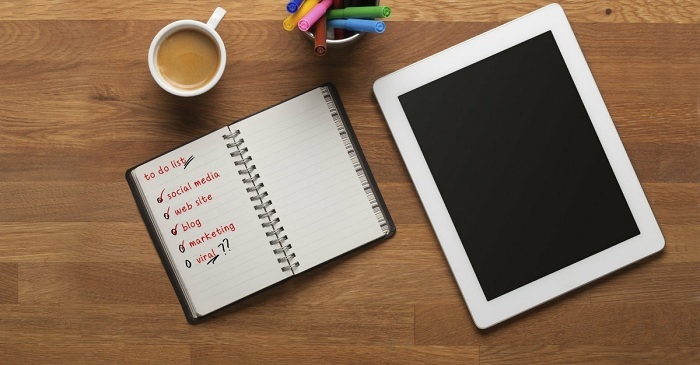Ideas for creating an ideal to-do list

89% of people say that they do not cope with their daily duties ; Only 11% of professionals around the world perform what they have planned for the average working day (according to a LinkedIn survey). Therefore, we asked the experts how to make a list of tasks that can be done .
Reaching goals on paper is more likely. But many of us have to struggle with an endless list of cases: pick up at the dry-cleaning, finish the work on the presentation, call the dentist, book a plane ticket, order a wedding gift ...
')
Tracy McCubbin, a professional organizer and owner of dClutterfly located in Los Angeles, believes that one of the reasons for the annoyance of the task lists lies in high expectations : we want to fulfill all the planned tasks. The lists, in her opinion, are something living and breathing, opposing the fact that you could say: “I’ve crossed out everything and have enough of me!” In addition to reconciling with their infinite kind, here are some other strategies for taming assignments.
Assess priorities really
Having written too many items in our to-do list, we may feel overwhelmed. Therefore, Jason Womack, the current coach and author of the book “There is no limit to perfection,” suggests adhering to “money-making verbs and actions that make you happy.” “Many people fall into the trap of thinking that they are really busy, but they don’t cope with many,” Womack says. He asks his clients what 2–5 actions will help them move forward this year.
Womak himself earns through speeches and publications. Therefore, he concentrates on such activities as writing texts, making phone calls, and conducting electronic correspondence . All this protects his prospects and ensures a regular flow of income, so that Waumac and his wife, Jody, go on vacation for a whole month every year, and this already applies to the field of happiness.
To help his clients determine exactly which tasks they should concentrate on, he asks: “Why are you doing this?” And “If you complete this task for the next 36 months, do you think you will become happier or be able to make more money? "
Paula Rizzo, author of “List thinking: using lists to increase productivity and success and reduce stress,” recommends taking only one sticker per day to avoid the temptation to grab new tasks: “I believe in very short, targeted lists in which be just a few points! ”Instead of putting additional tasks on your list, consider the possibility of delegating the purchase of products or cleaning to someone else. And give yourself a break, if you do not have time to cook pasta from scratch.
“You should not be hurt if such cases continue to arise. Such items probably need to be sent to a list entitled “Someday,” notes Rizzo.
You can revise this list later, but do not let matters from there distract you from more important tasks. Putting order on your list with the help of deadline (with putting urgent cases in the first place) will also help determine priorities .
Understand what is best for you.
Since the methods of maintaining lists are constantly being improved, there is no one universal option. Some people like the feeling they get when writing a list by hand.
Others are attracted by the ability to synchronize with a digital list from different devices and have access to tasks from anywhere. Rizzo prefers to break his lists into different categories (work, home, travel, etc.) in order not to be controlled with one marathon list.
And McCubbin keeps his general list in a notebook that he carries in his purse. “It’s more convenient for me, if everything is in one place, I don’t like to distinguish life,” she explains.
Get rid of old lists or duplicate them.
Having coped with the task, mentally pat yourself on the shoulder, removing it from the list. “I know how to add to the list of deliberately unnecessary cases, allowing me to cross them out and experience a sense of deliverance,” says Rizzo.
If you want to get a list of completed cases, the iDoneThis application will help with this. But don't let old to-do lists clutter up your desktop and collect dust. McCubbin says: many of her clients duplicate their lists on different scraps of paper or lined notebooks throughout the house. “People argue with me, but I find lists five years ago,” she laughs.
Of course, the tasks that you coped with, according to Womack, are much more significant than the list itself. “It's not a matter of making a list, but of creating a motive force forcing you to perform important tasks. By lining up tasks in line, you keep the concentration that allows you to get to the desired turn. ” Use the approach that takes you to the next milestones, and it doesn't matter if it is a self-adhesive piece of paper, an Evernote file or a lined notepad.
PS We recommend another article on the topic - How to choose the key aspects of life in order to invest time and energy in them .
Translated by Vyacheslav Davidenko, founder of MBA Consult .
Source: https://habr.com/ru/post/296884/
All Articles